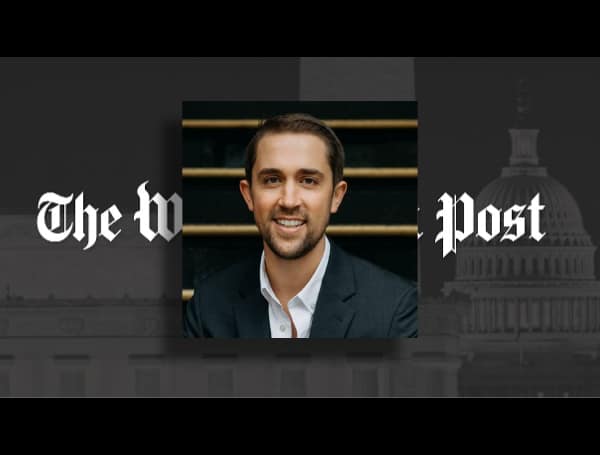Christopher Rufo has carved out a niche in conservative media as the Paul Revere of Critical Race Theory – and liberals hate him for it.
In a high-octane moment of gaslighting, New York magazine last month accused Rufo of inciting a “moral panic” over CRT with his “dramatic, dodgy reporting.” The New Yorker claimed that Rufo had “invented the conflict” over CRT.
But nothing has proved the old adage that you only catch flak when you’re over the target more than The Washington Post. Rufo recently tweeted a screenshot of 10 Post headlines from “news” and opinion pieces that within the space of a few weeks sought to criticize or discredit his work on CRT.
The Post’s hatred was so bad that it made things up to attack him. In June Rufo tweeted that he got the Post to disown a story because it “admitted to fabricating a timeline, retracted or added six full paragraphs, reversed a key claim, and failed to produce evidence of a falsified quotation.”
Last week, the Post’s chief “fact-checker,” Glenn Kessler, was exposed by a source for lying about his intention in an anti-Rufo piece.
According to HotAir.com, Kessler believed he had the goods that Rufo had lied about having an anonymous source that exposed CRT practices in Seattle’s public schools.
He contacted Karlyn Borysenko who had tweeted about the whistleblower a day before Rufo asked the school system about the CRT program.
“He was piggybacking off of your research and has been falsely claiming he had an anonymous tipster helping him,” Kessler wrote to Borysenko. “Now he has hijacked the whole thing into some kind of anti-White attack, which I don’t think was your original intention.”
Kessler then asked Borysenko not to mention his message.
She promptly torched him. Publicly.
She posted his message on Twitter and added that the whistleblower was real, that the person offered both of them the same information, and that she didn’t think Rufo had “hijacked” her work.
“I’m grateful for his work,” she added.
Kessler then doubled down, whining to Borysenko about her going public and saying he “never suggested the person did not exist” – when he clearly said that Rufo was “falsely claiming he had an anonymous tipster.”
Borysenko again posted to Twitter: “Sorry you’re disappointed, but I’m disappointed that the @washingtonpost is doing yet another hit piece on him. It’s ridiculous. Regardless, the whistleblower is real and was talking to both of us. Rufo is ALWAYS on strong ground.”
Kessler then waved the white flag. He told Borysenko that he dropped plans for his “fact check.”
Rufo then shared that exchange and noted Borysenko had “brutally corrected his series of faulty assumptions, pre-conceived narrative, and obvious political bias.”
“Democracy dies when the media lies,” Rufo added.
The moral of the story, though, can be found in comments to this incident on Twitter.
As one poster responded, “Shouldn’t that be a Fact Check: True? Why is a fact check only being written if it was politically advantageous? @washingtonpost if you thought this was worth fact checking when it was false, it is just as important to fact check that it was true.”
One might think so. But Kessler, by not bolstering Rufo’s side of the story, only proved that the “fact check” brigades are out to further the narrative – not get at the heart of the truth.
Support journalism by clicking here to our gofundme or sign up for our free newsletter by clicking here
Android Users, Click Here To Download The Free Press App And Never Miss A Story. It’s Free And Coming To Apple Users Soon.
